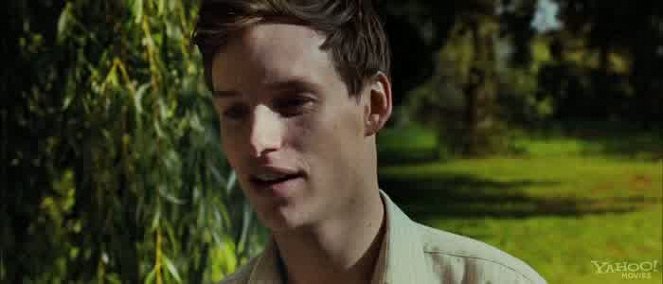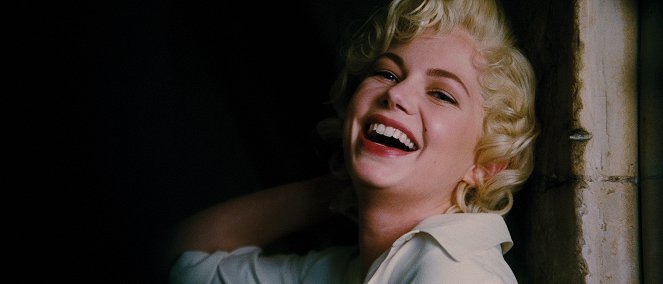Ohjaus:
Simon CurtisKäsikirjoitus:
Adrian HodgesKuvaus:
Ben SmithardSävellys:
Conrad PopeNäyttelijät:
Michelle Williams, Eddie Redmayne, Kenneth Branagh, Judi Dench, Emma Watson, Dominic Cooper, Julia Ormond, Dougray Scott, Derek Jacobi, Zoë Wanamaker (lisää)Suoratoistopalvelut (4)
Juonikuvaukset(1)
Colin Clarkin kahteen kirjaan perustuva brittidraama kertoo Marilyn Monroen ja Laurence Olivierin tähdittämän elokuvan Prinssi ja revyytyttö (1957) synnystä. Tarina keskittyy viikkoon, jolloin Clark toimi Marilyn Monroen isäntänä Englannissa tämän miehen Arthur Millerin poistuttua maasta. (Scanbox Entertainment Fin.)
Videot (41)
Arvostelut (7)
It's been a long time since I've enjoyed an acting performance as much as I have here in the case of Michelle Williams. She may lack the sexy sparkle of the real Marilyn Monroe, but she has perfectly nailed her gestures, poses and acting mannerisms, and the many film awards she has won for it are well deserved.
()
There was very little missing and this film could have been a good drama about the destructive halos of stars and the circus, which makes people into actors even in the most ordinary of situations. Kenneth Branagh's monologues are good in places, the charge of the noble tragedy of the stage, which was once so beautifully exhaled by the great William. Michelle Williams is also excellent in the role of a lady with a blown skirt - she contains a piece of a sexy being who hypnotizes the world around her and the unstable and disgusting wreckage, which Iveta Bartošová would certainly understand. On the one hand, the film wants to show the other side of show business, whilst on the other hand, it delights nostalgically and impresses with the theater in its entirety. The two tendencies go against each other and shatter each other. The Artist managed to balance this double tension of the Golden Age syndrome in a playful way, which also includes an ironic insight, but the deserving classicist facade of Curtis' film is unable to do anything like that. It is heavy, full of unnecessary kitsch and visual phrases. In the places where the film starts to get good (because it goes beyond a sweaty melodrama and is about a boy from the crowd who touched a star), it always prepares a retreat down a sentimental path. It's such a magnificent promenade of British legends, wonderful performances and characters that have so much pathos and theatrical mannerism in them that you can't see their "other self", which they sometimes talk about in confusion... It’s too bad.
()
Colin Clark and his books "The Prince, the Showgirl and Me: the Colin Clark Diaries" (1995) and "My Week with Marilyn" (2000) are mere local phenomena. This is classic British parasitism of Hollywood. The film version of this story is exactly the same - this is how a movie could be made about any movie a Hollywood star made outside the U.S. (what she ate, who fell in love with her, what her husband said...). It’s really an inferior genre. Never mind that we have a fine cast here, represented by names such as Julia Ormond, Derek Jacobi, Judi Dench, and Kenneth Branagh. We also get youth favorites Eddie Redmayne, Emma Watson, and Michelle Williams (whose interpretation of Monroe is questionable, to say the least). The Prince and the Showgirl was the first project of Marilyn Monroe Productions, so Monroe brought not only her name, the star couple Monroe-Miller, but also money to England, and it is therefore unrealistic to make a film about her as someone whose presence was suffered on the set.
()
Somehow, I can’t get over Marilyn’s behavior. I must admit that people really treated each other this way back then, but all of Marilyn’s good mood stemmed from drugs and everything else hinged on that. The film stands and falls by Marilyn, who was portrayed perfectly by Michelle Williams, but to be honest, I liked watching Emma Watson more. And that’s something considering she had a very secondary role in the movie. Even so, I must admit that it’s a proper piece of filmmaking, properly British. It has the typical British gallantry, which is nice and pleasant, but it can easily bore you to sleep.
()
Whereas Colin matures over the course of the film thanks to a number of more experienced women, the film itself unfortunately missed out on this maturation process. After showing a few signs of maturity, the film ultimately returns to its initial superficiality. Furthermore, the coming-of-age storyline with the dull narrator does not obscure the fact that Colin is here only so that we can observe someone more famous through his eyes. However, this does not excuse the prevailing naïveté of that point of view. ___ The filmmakers did not go further than making an attempt to enchant only with a shiny surface. They would like to show Marilyn as a fragile and vulnerable being, but they don’t want to abandon the myth of the self-confident star. The effort to have both elements leads to failure on two fronts. The narrator admits to taking the actress’s side, which corresponds to the chosen perspective. Marilyn (like women in general) is viewed with greater understanding than the narcissistic Olivier. In presenting an idealised image, however, the film does not go far enough in humanising her, just as it refuses to be fully enchanted by classic Hollywood (like The Artist). Both of these aspects are hindered by moments of ironic self-reflection and the deliberate depiction of the star as people want to see and love her (or rather moments of double self-reflection, when Marilyn is despondent over her ugly face, which doesn’t belong to her, but to Michelle Williams). The simple enchantment and pure joy of being at the side of the star do not work because of the realistic moments of awakening, whose incorporation into the plot is inconsistent and more or less random. ___ Though probably unintentionally, the romantic storyline also brings the film closer to the remotely suspected truth. From the actress’s adherence to the “seduce and discard” method and the week mentioned in the title, it is apparent that Marilyn and Colin’s relationship will go nowhere. This is probably how a similar affair would have turned out in reality, but their moments together lack the necessary sense of detachment and are played and directed too seriously, though we – unlike the film’s creators – feel that it doesn’t make any sense to focus on them. ___ Michelle Williams deals with an issue similar to that facing the director, namely how to depict Marilyn. Though she may have got to know her more famous colleague from the other side (thanks to statements of relatives and loved ones), she has to use the same typical gestures in scenes of both intimate moments and public appearances in order for us to believe her performance. She has to be the Marilyn as we know her best, i.e. not the real Marilyn. Not to mention that in the space of one week, it’s not possible to do more than outline a rough sketch. At the same time, the believability of Williams’s performance is aided by the fact that, away from the cameras, she doesn’t try to evoke the eroticism that surrounded the real Marilyn at every step. Thanks to the suppression of that sensuality, she can focus more on the actress’s tattered psyche and thus do a better job than Marilyn herself at portraying who Marilyn actually was. Unfortunately, the screenwriter doesn’t leave enough space for a more detailed depiction of authentic situations. ___ While Williams strives for a perceptive interpretation of her character, Branagh’s caricature of Olivier merely diverts My Week with Marilyn from its mostly serious direction. There is not a noticeable resemblance between Olivier and Branagh; at best, their similarity can be seen in their shared love of Shakespeare (which was probably the reason that Branagh got the role). The film’s male characters are generally treated with likable indifference. After all, it’s about Marilyn, so why bother with what led Olivier, who stuck to the script as written, to cast an obstinate method actress, or why be concerned with the fact that Colin only gets a job instead of the girl and money thus wins out over love (only an idealist could assert that instead of love for a living person, only the more enduring love of cinema remains for him). ___ This contradictory film about a contradictory personality would have something to it if that contradictory nature weren’t merely a side-effect of a futile attempt at something like simple complexity. 60%
()
(vähemmän)
(lisää)



Mainos